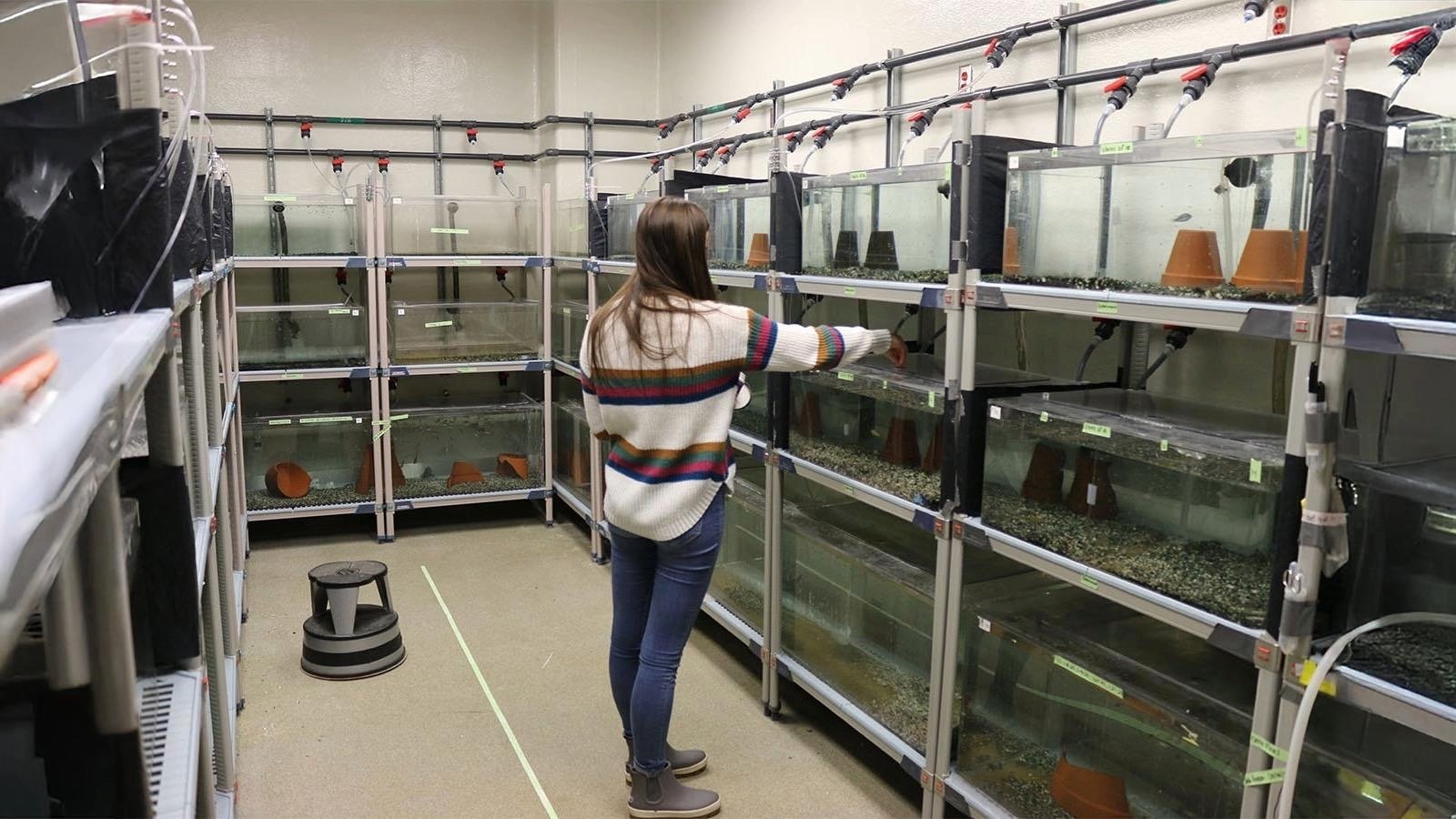Swimming towards answers: Fish and the role of androgens in the maintenance of healthy cells
Exploring the link between androgens and oxidative balance in fish
 While fish and humans seem different, they may share surprising similarities regarding the effects of androgens on cells. CMU graduate student, Tyler Beyett, is actively working with his mentor Peter Dijkstra to determine how androgens, such as testosterone, can impact oxidative balance in animals. High levels of oxidative stress can lead to cell and tissue damage and may contribute to chronic diseases. Beyett’s research was supported by a Summer Program in the Arts and Research grant from the Office of Research and Graduate Studies and is an example of how fish studies can provide valuable insights into human health, linking the degree of social stress experienced with oxidative stress.
While fish and humans seem different, they may share surprising similarities regarding the effects of androgens on cells. CMU graduate student, Tyler Beyett, is actively working with his mentor Peter Dijkstra to determine how androgens, such as testosterone, can impact oxidative balance in animals. High levels of oxidative stress can lead to cell and tissue damage and may contribute to chronic diseases. Beyett’s research was supported by a Summer Program in the Arts and Research grant from the Office of Research and Graduate Studies and is an example of how fish studies can provide valuable insights into human health, linking the degree of social stress experienced with oxidative stress.
To assess the impact of androgens on oxidative stress levels, Beyett set up a seven-week experiment to alter the androgen levels of cichlid fish Astatotilapia burtoni by manipulating the level of social competition. Beyett selected this species due to the intense territoriality the fish species possesses. After placing two fish in each of the 51 tanks provided, a piece of perforated plastic was placed between them, ensuring the fish could see each other, but not physically interact.
To alter levels of testosterone, some fish were provided with a cave for the duration of the experiment, and others never got access to one. When males actively defend a cave, testosterone levels increase. By manipulating the degree of territoriality in these fish, Beyett was able to modify the amount of stress stemming from the social environment. Beyett spent seven weeks monitoring the aggressive competition attempted between tankmates.
Each tank was video recorded for five minutes every week, adding up to a total of 60 hours of footage that is being analyzed to quantify the displayed behaviors. Beyett is also assessing levels of oxidative stress, and he does not have finalized results yet. However, it is known that aggressive behavior is linked to heightened androgen activity; therefore, Beyett specifically predicts males that had access to a cave will have higher levels of androgens and exhibit heightened frequency of aggressive behaviors. As Beyett continues to analyze the data, his research could pave the way for new discoveries in how androgens impact oxidative balance throughout the body.




